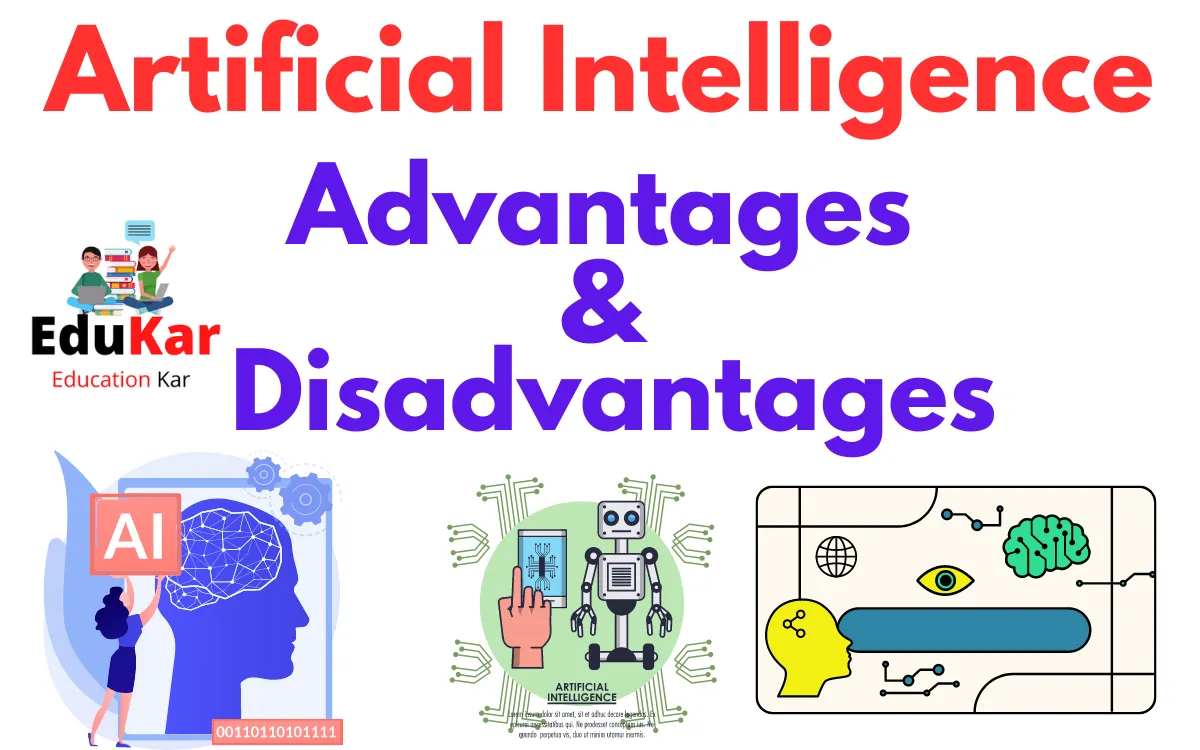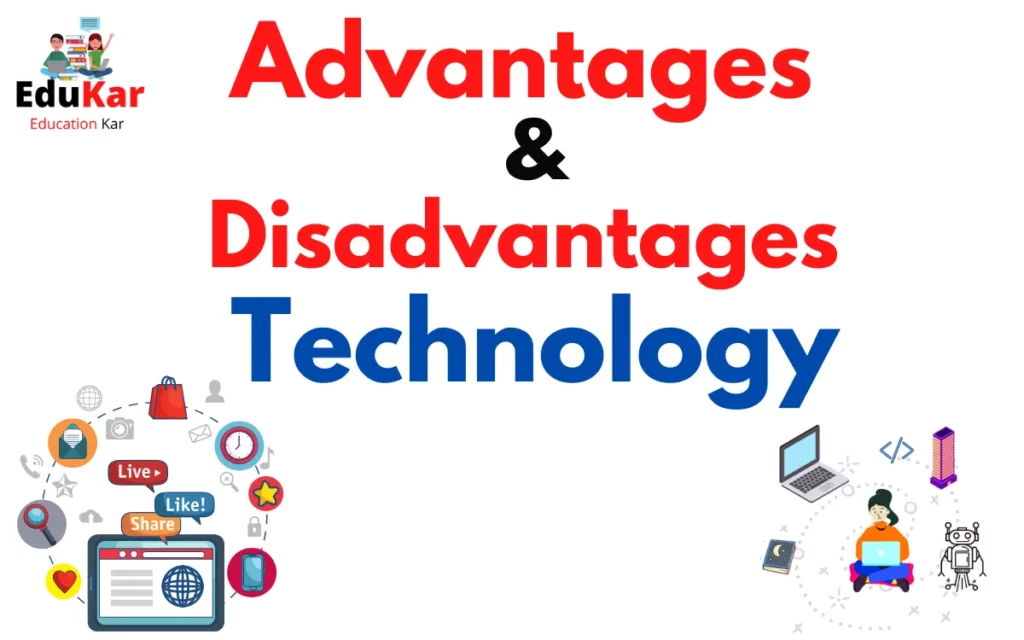Contents
Looking to learn about the pros and cons of artificial intelligence? Check out our guide to the advantages and disadvantages of AI, including its potential to transform industries, improve efficiency, and revolutionize healthcare, as well as its risks related to job displacement and privacy concerns.

Artificial intelligence, or AI, is rapidly transforming many industries and aspects of our daily lives. From virtual assistants and autonomous vehicles to medical diagnosis and fraud detection, AI is being used to solve complex problems and make our lives easier in many ways. However, as with any powerful technology, AI also comes with its own set of advantages and disadvantages.
In this blog post, we will explore some of the key advantages and disadvantages of AI, including its potential to improve efficiency, reduce costs, and revolutionize healthcare, as well as the risks related to job displacement and privacy concerns. Whether you are new to the field of AI or an expert in the field, this post will provide valuable insights into the current state and future potential of this rapidly evolving technology.
What is Artificial Intelligence (A.I.)?
Artificial Intelligence, or AI, refers to the development of computer systems that can perform tasks that typically require human intelligence, such as visual perception, speech recognition, decision-making, and language translation. AI systems are designed to analyze data, learn from patterns, and make decisions in a way that mimics human cognition, often using machine learning and neural networks to improve performance over time.
AI technologies are used in a wide range of applications, from personal assistants like Siri and Alexa to self-driving cars, medical diagnosis, and fraud detection. As AI continues to evolve, it is likely to have a profound impact on many aspects of society, including work, healthcare, and even our understanding of what it means to be human.
Advantages of Artificial Intelligence:
- Automation: AI can automate repetitive and mundane tasks, freeing up time and resources for more complex and high-level tasks.
- Efficiency: AI can process vast amounts of data quickly and accurately, improving the efficiency and speed of decision-making.
- Improved accuracy: AI systems can reduce errors and increase accuracy in decision-making, particularly in areas such as medical diagnosis and fraud detection.
- Predictive analytics: AI can analyze data and identify patterns to make predictions about future outcomes, such as sales forecasts or customer behavior.
- Personalization: AI can be used to personalize customer experiences and marketing campaigns, improving customer satisfaction and loyalty.
- 24/7 availability: AI-powered systems can operate around the clock, providing constant availability and support.
- Reduced costs: By automating tasks and increasing efficiency, AI can reduce costs for businesses and organizations.
- Improved safety: AI can be used to monitor and detect potential safety hazards in real-time, improving safety in industries such as healthcare and manufacturing.
- Enhancing creativity: AI can be used to generate creative ideas, such as in music or art, or to assist with creative processes, such as in design or content creation.
- New discoveries: AI can process large amounts of data and identify patterns that humans may not be able to see, leading to new scientific discoveries and insights.
| Advantage | Explanation |
|---|---|
| Efficiency | AI can perform tasks much faster and more accurately than humans, making it an efficient alternative to human labor. |
| Consistency | AI can perform tasks with the same level of consistency, regardless of the time of day or how many times the task is repeated. |
| Error reduction | AI systems can be designed to eliminate or reduce the risk of human error, particularly in high-risk and safety-critical industries. |
| Improved decision-making | AI can analyze vast amounts of data and provide insights that may not be immediately apparent to humans, helping to inform better decision-making. |
| Continuous operation | AI systems can operate 24/7 without the need for breaks or rest periods. |
| Innovative solutions | AI can come up with innovative solutions to complex problems that humans may not be able to identify. |
Disadvantages of Artificial Intelligence:
- Job displacement: AI can automate many jobs that are currently performed by humans, potentially leading to job displacement and unemployment.
- Bias: AI systems can be biased based on the data they are trained on, potentially perpetuating and amplifying existing biases in society.
- Lack of emotional intelligence: AI lacks emotional intelligence and empathy, which can make it difficult to handle situations that require emotional intelligence, such as counseling or customer service.
- Security risks: AI systems can be vulnerable to security breaches and cyberattacks, potentially leading to data breaches and other security risks.
- Dependence: Over-reliance on AI systems can lead to dependence on technology, potentially leading to a loss of skills and knowledge in critical areas.
- Ethical concerns: The use of AI raises ethical concerns around privacy, surveillance, and the potential misuse of AI-powered systems.
- Unpredictability: AI systems can be unpredictable, making it difficult to anticipate their actions and outcomes in complex situations.
- Lack of transparency: The inner workings of many AI systems are often opaque and difficult to understand, making it difficult to detect and correct errors or biases.
- Expensive: Developing and implementing AI systems can be costly, requiring significant resources and investment.
- Dependence on data: AI systems require large amounts of data to function effectively, which can raise concerns around data privacy and access.
| Disadvantage | Explanation |
|---|---|
| Job displacement | As AI takes over more tasks traditionally performed by humans, it may lead to job displacement or a shift in required skills for certain jobs. |
| Lack of empathy | AI lacks the emotional intelligence of humans, making it challenging to understand and respond to human emotions and needs. |
| Bias and discrimination | AI systems can reflect the biases of their creators or the data they are trained on, leading to discriminatory outcomes. |
| Dependence on technology | As society becomes more reliant on AI, there is a risk that we become too dependent on technology and lose critical skills and knowledge. |
| Costly implementation | Developing and implementing AI systems can be costly, particularly for smaller businesses or organizations. |
| Security risks | AI systems can be vulnerable to cyber attacks and may compromise sensitive information. |
Conclusion
Artificial Intelligence offers a wide range of advantages, from automation and efficiency to predictive analytics and improved accuracy. It has the potential to revolutionize many industries and aspects of our daily lives, from healthcare and education to manufacturing and customer service. However, AI also comes with its own set of disadvantages, such as the risk of job displacement, bias, and security concerns.
As AI continues to evolve and become more integrated into our society, it is important to consider both the benefits and risks of this powerful technology. By doing so, we can work towards harnessing the full potential of AI while also addressing the challenges and ethical considerations that come with it. With careful consideration and responsible use, artificial intelligence has the potential to transform our world for the better.
FAQs:
What are the advantages of artificial intelligence?
Artificial intelligence offers a range of advantages, including automation, efficiency, improved accuracy, predictive analytics, personalization, 24/7 availability, reduced costs, improved safety, enhancing creativity, and new discoveries.
What are the disadvantages of artificial intelligence?
Disadvantages of artificial intelligence include job displacement, bias, lack of emotional intelligence, security risks, dependence, ethical concerns, unpredictability, lack of transparency, expense, and dependence on data.
How does artificial intelligence impact jobs?
Artificial intelligence has the potential to automate many jobs that are currently performed by humans, potentially leading to job displacement and unemployment. However, it can also create new job opportunities in areas such as data analysis, AI development, and robotics.
How can we address bias in artificial intelligence?
To address bias in artificial intelligence, it is important to ensure that the data used to train AI systems is diverse and representative, and to use techniques such as explainable AI to make the decision-making process more transparent.
What are some ethical concerns around artificial intelligence?
Ethical concerns around artificial intelligence include issues around privacy, surveillance, and the potential misuse of AI-powered systems, as well as questions around the responsibility of developers and users to ensure that AI is used for the benefit of society.
















